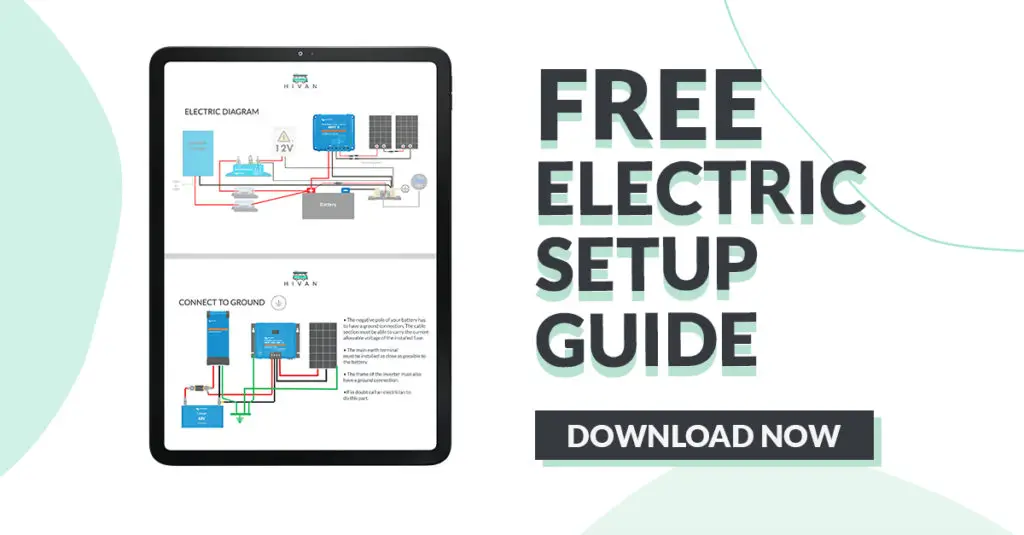An RV Inverter converts 12-volt DC battery power to 110 volts AC household current. It is a great tool for off-the-grid living, but it can be noisy.
Noise from an RV inverter can come in many forms and have a variety of causes. In this blog post, we will discuss seven reasons your RV inverter makes noise, from overloading to broken parts. By the end of this article, you will know how to tackle any of these problems and know how to fix them!
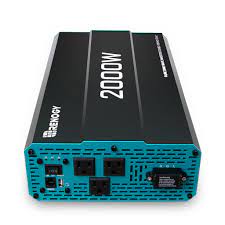
How to Tell If The Noise from you Inverter Is Dangerous
Your RV inverter makes some noise, but how much noise is considered out of the ordinary? An RV inverter converts 12-volt DC power from your RV’s battery into 120-volt AC power, which is what you need to run the appliances in an RV. An overloaded inverter can create unwanted noise.
- If the noise is coming from one side of your RV’s inverter, that might be a sign it’s dying, and you’ll need to replace it.
- A higher frequency noise could sometimes mean there are brushes inside the motor that are failing to create enough friction for turning. This type of noise will only worsen over time and may need an electrician to fix, instead of just replacing parts.
- If you hear buzzing noises or sounds like something is loose inside when you first turn on your inverter, this can also be a sign of failure as well as a potential fire hazard–if these noises happen when power is plugged into the unit, turn it off!
In essence, it does a lot of work for us. It takes the batteries’ low voltage and converts it to a high enough voltage so you can use your electronics without the risk of shorting out or damaging them. It also has surge protection built right in!
When you turn on something that draws more current than usual, for instance, when someone plugs their hairdryer into an outlet, this could cause overloading to the circuit and cause an outage or damage if not caught by your inverter. This can lead to strange noises emanating from the inverter and surrounding parts.
Now sometimes, your inverter is not the problem behind the noise, or it is only partially contributing to the noise. If that is the case, you may want to get your RV serviced by a professional who can diagnose all the different problems and come up with fast solutions.
Related Articles:
– Top 5 Campervan Fridge Freezer Combos For Van Life
Fixing A Noise Issue
This noise is usually caused by the fan, which cools down and heats up with the inverter. If your RV’s inverter makes a loud humming noise when it kicks on, this can be fixed by installing some type of sound insulation around where you keep your batteries to muffle any outside sounds or noises.
How to Know If the RV’s Inverter Is Bad
There are a few ways to know if your RV’s inverter has gone bad. But when all of the moving parts on your RV make some sort of noise, it can be difficult to distinguish what is normal for the inverter and what indicates it has gone bad.
The following are two different scenarios you can draw from to determine if your RV’s inverter is bad:
- Constant noise could be a sign that your RV’s inverter is bad.
- If the only thing plugged into the inverter is drawing less than 15 amps, you should be okay for now.
1) Your Inverter is Overloaded
If the inverter is overloaded and the cooling fan can’t keep up, you may notice that the fan is always running and that your RV inverter makes a constant humming noise.
Several things can cause this overload condition:
- Too many electrical devices on one circuit
- Not enough battery power to run all those appliances at once
- Insufficient ventilation for cooling
Related Articles:
– Top 5 Campervan Fridge Freezer Combos For Van Life
How to Fix An Overloaded Inverter
You can fix an overloaded RV inverter by following these steps:
- Disconnect all the electrical devices on that circuit from your RV inverter.
- Check to see if you have enough battery power or whether adding a fan will help cool things down.
- If you need more than one battery, replace them with deep cycle batteries, and don’t forget to make appropriate wiring changes for both batteries to be connected in parallel.
- Finally, reconnect only those necessary appliances and then monitor the noise levels until it goes away (usually after 20 minutes).
If the RV inverter is still noisy following these steps, try disconnecting any other unnecessary electrical loads such as fans or lights.
2) Your Inverter’s Batteries Are Low or Out
If the batteries are weak or run down on your inverter, it can make an alarming noise alerting you to a voltage drop. If this is the case, recharge your batteries or replace them with more powerful ones and then reconnect all electrical loads.
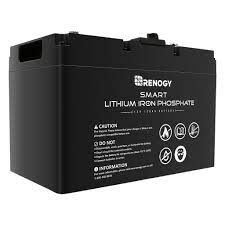
The following steps show you how you can check your RV inverter’s batteries:
- Turn off all electrical loads
- Remove the main battery cover and disconnect both batteries (first, look at your RV’s owner’s manual for specific instructions)
- Measure voltage with a voltmeter across the terminals of each terminal. If they are 12 volts or more, you have enough power to run appliances on the inverter without noise issues. However, if there are less than 11 volts across them, it indicates that one or both batteries are low and need replacing.
Avoiding Voltage Drops and Spikes
These are more likely to happen if someone plugs their hairdryer into an outlet while their coffee maker is plugged into another. This causes both appliances to draw from the same power supply, like the battery.
To fix voltage spikes and drops, turn off one device until there isn’t enough load for that specific circuit or add an isolated breaker box so different circuits won’t interfere with one another.
If, after replacing the batteries, there is still a problem with the noise, then you might want to check for loose connections in your RV.
Some of the possible causes for your batteries to run low include the following:
- Fan running when it’s not needed
- Lights left on inside or outside
- Power converter set up incorrectly
- Refrigerator compressor running while not hooked up to propane gas
Check your owner’s manual and/or consult an electrician if necessary, based on where you’re located. If all else fails, replace it with a newer, more powerful battery before trying again!
One last thing that may be causing this problem is a circuit breaker malfunctioning; here’s what you need to do to reset the circuit breaker:
- Turn off electrical loads by flipping switches near each breaker
- After resetting the breaker, turn loads on one at a time
- If the noise problem persists after you have done this, then it’s probably not your RV inverter.
However, before replacing anything expensive, like your inverter, you should always recheck for loose connections and then get a second opinion!
3) Your RV’s Inverter Was Wired Incorrectly and makes noise
If you’re using two deep-cycle RV batteries in parallel to power an inverter that has circuit breakers, these are still capable of creating a lot of unwanted noise.
If there’s no connection between both banks of leads on the battery posts (which usually only happens when someone modifies their cables), you will want to reconnect the batteries in parallel.
Make sure that they’re connected correctly by making either a jumper wire or shorting one cable end to its nearby neighbor post for each side before connecting again.
4) Your Inverter Is Dirty
It may be the case that your inverter needs to be cleaned up. Dirty inverter fins on the outside of the unit are making too much noise as the fan tries to pull in more air.
To clean the inverter fins on your RV, follow these steps:
- Fill a bucket with soapy water and add in about two cups of ice.
- Submerge the inverter fins into the solution for 20 minutes,
- Scrub the fins with a washcloth or rag to remove any caked-on dust, dirt, and grime.
- Then remove them from the bucket to dry off.
- Finally, use a can of compressed air or an air compressor to blow out any dust or dirt that might be stuck in between blades on your fan’s motor.
Keeping your RV clean not only reduces noise but also keeps the machinery working better for longer. After you clean the fins, regularly check them at the beginning and end of each camping season, as well as halfway through the season.
5) Your Inverter Has Low Voltage
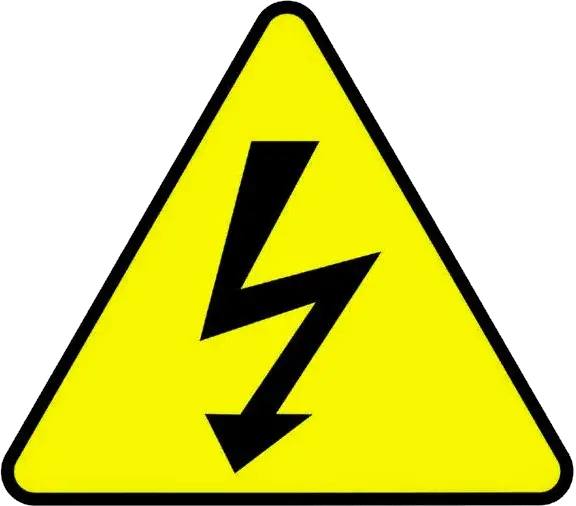
If you hear unusual noises coming from your RV’s inverter, it could be because the inverter is running on low voltage. This usually happens when there are a lot of appliances or devices being used at once, and there is not enough power to go around for all of them.
You might be getting some bad connections from the power cable or the load on your inverter. This could happen because of damage caused by heat, age, or corrosion, and it’s fixable!
6) Is Something on the RV or Inverter Broken?
Your RV inverter may be broken or have a faulty component that is causing the noise. A faulty component inside of your RV inverter is causing it to make noise because of any of the following:
- A part has come off its track
- A part is caught on another part
- Two parts are rubbing against one another
Check for any loose screws, broken clicks, or faulty parts that could be repaired. It may be as easy as putting a component back in place.
7) The Fan Isn’t Working Properly
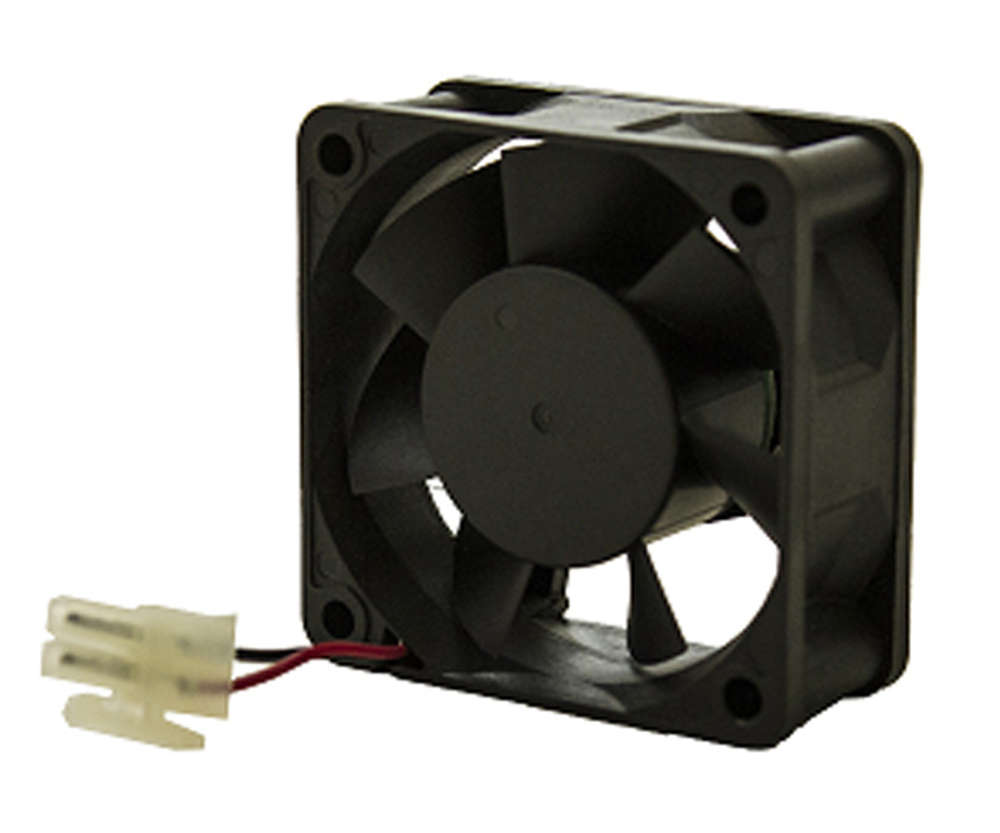
You may be wondering, what does the fan have to do with your inverter? Often, a fan issue can be mistaken for an inverter issue, as the fan is more likely to make some major noises. And since all these components can be relatively compact on an RV, you may have difficulty deciphering where the noise is truly originating.
- Check the fan’s operation first by turning it on and listening closely near the unit; if there’s not enough ambient airflow coming through the fins, you may need to clean them.
- You do not want dust or dirt particles to continue getting caught inside those spaces and clogging up airflow holes. So, to clean the fan, use a duster, dry cloth, or vacuum cleaner.
- Worn-out bearings on the fan’s motor or gears can also cause noise problems, which you will hear as increased vibrations while the fan is in operation.
- For both components, replacing them is usually necessary, and this typically involves removing panels from your RV, but it’s not too difficult if you’re handy with tools.
- We’ve had success using a penetrating oil like WD-40 to help loosen up gunk inside an old unit before trying anything else.
Weird Noises Your RV Inverter Could Be Making
There are still many reasons why your RV’s inverter is making noise. Below we cover six different noises that can lead to a specific problem related to your RV’s inverter.
The Inverter Has A Clapping Noise
If you’re hearing what sounds like clapping, this may mean one of two things:
- Rubbing parts – Either pieces are coming off and falling into the area where they contact other parts, causing them to rub loudly
- Compressor issues – You have an inoperative compressor that has lost all ability to create pressure to keep coolant flow going. This means condensation on coils can’t happen without power, so it puddles up under the fan blades causing loud noises from vibration as they move around trying to get enough RPMs for cooling purposes. If you think this is the issue, you’ll need to replace the compressor.
A Grinding Noise Is Coming From The Inverter
If there’s a grinding noise, it could be coming from fan blades hitting other hard parts such as metal wiring or pieces of plastic housing that are in proximity with one another.
The grinding noise is likely caused by vibrations from these broken parts and will require repairs before continued use, so they don’t cause any more damage.
The sound of grinding could indicate serious issues if not addressed quickly, so get it checked out right away.
The Inverter Is Making A Hissing Sound
Air hissing indicates a leaking gasket seal on the condenser coils, which needs replacement right away. If too much coolant leaks out, then your RV inverter will overheat, causing permanent damage.
If you hear an odd squeaking sound when turning the inverter off and on, it may mean that your fan blade has come loose due to vibration and isn’t secured properly anymore – watch for slipping and get it fixed as soon as possible.
There Is Ticking From The RV’s Inverter
A clicking noise will tell you that something isn’t seated properly, such as a wire harness connector coming off its connection point or an object has fallen into one of the propeller blades inside the engine block. It needs to be removed immediately for optimal safety because this can be a serious issue.
The Inverter Is Making A Rattling Noise
If your RV inverter is making a rattling noise, it means that the fan blades may have come loose from their holder or there’s some other object interfering with them – check and make sure everything is securely attached before continuing to use the unit.
There Is A Loud Buzzing Coming From The Inverter
Any noise that sounds like a loud buzzing can be caused by loose, worn-out, or damaged blades in the engine housing. So, see if there are any warning lights on your RV inverter control panel and make sure to address this as soon as possible before continuing with use because you could risk damaging other components such as:
- The alternator
- Generator rectifier
- Stator coils
- Capacitor
Now that we have covered six of the common noises that can be produced by your inverter and detailed fixes for each of them, you are ready to tackle the issue.
If these fixes do not work for your RV’s inverter, then it is time to take your RV in to get some professional attention. You should consider taking your motorhome into an automotive shop where they have specialized equipment designed just for fixing RV inverters like yours.
Other Problems with Your Inverter Causing Noises
If you’re still unsure about what type of noises your RV inverter can make, here are some common issues and their associated noises:
- Potential overheating condition – A high pitched or squeaking sound while running
- A bearing has failed – Lopsided vibrations while running
- A problem with the fan – A grinding noise
- Excessive voltage – A thumping or banging sound when it’s running. This is an issue that an electrician should examine
If any of these noises come from your RV inverter and persist for more than one day, we recommend having it looked at immediately.
Summary: Seven Noises Your Inverter May Be Making
We hope this article has helped you understand the different noises your RV inverter may make and how to fix them.
Inverters can be a great tool for off-the-grid living, but they have their drawbacks. Knowing how to deal with noise from an RV inverter is important so that you don’t create more problems than necessary or make your life less enjoyable while camping.
If you are experiencing any of these noises and want help fixing them, call a professional! They can easily find a solution to effectively and correctly eliminate the noise in your RV inverter.

